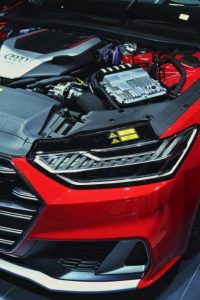With understanding and maintaining your car, you must delve into particular details. One major identifier is the engine number. At times, engines can get replaced with a second-hand model that doesn’t have a matching engine number. This isn’t a big problem when you are driving in your own country. When you plan to import or export the motor though, it does become a concern. What we are going to do here is explain what engine numbers are and why they’re so important. It is something car brokers and prospective buyers should know.
An engine number is a distinct alphanumerical code placed on an individual car’s engine when it’s manufactured. This code acts as a particular identifier. It distinguishes your engine from the rest. Moreover, it offers vital details about its specifications.
For those wondering where it is, you will normally find it on the engine block. It tends to be close to the cylinder head or the front side of your engine. In some cars, it is on the VIN plate or sticker under the bonnet.
The purpose of these numbers
 We will explain the significance of these numbers next. For one thing, there is the uniqueness. Like a fingerprint, the engine number is unique to every engine. It helps car owners, mechanics, and authorities trace the engine’s history, specification, and origin.
We will explain the significance of these numbers next. For one thing, there is the uniqueness. Like a fingerprint, the engine number is unique to every engine. It helps car owners, mechanics, and authorities trace the engine’s history, specification, and origin.
Then there is identification. During car maintenance checks, registrations, or inspections, the number allows you to identify the motor. It guarantees accuracy with documents. Also, it helps to stop vehicle theft and identity fraud.
The number helps with manufacturing data too. It encodes details like specific features, production date, and the engine’s manufacturing plant. Such data helps with assessing the engine’s history, identifying suitable parts, and tracking recalls.
Finding the number
For buyers, sellers, or car brokers struggling to find their engine number, you can refer to the owner’s manual. This book tends to have information on where to find it. You’ll receive guidance specific to your motor’s model and make.
The number may be under the bonnet as well. It tends to be on a flat exterior here. In some instances, it can be close to the cylinder head, close to the transmission, or on the front side.
Lastly, you can check the VIN plate or sticker. Some cars display their number beside the VIN. This plate tends to be affixed to the firewall. Or, it will be in another visible spot.
How are they useful for used vehicles?
Now, we can talk about the significance of the engine number during used vehicle transactions. All car brokers should know these things.
One use is a verification of authenticity. When selling or buying used cars, confirming this number is essential for verifying the engine’s authenticity. It makes certain that the engine matches the motor’s records and stops the use of misrepresented or stolen parts.
However, it is not uncommon to replace the engine with a second hand one. This doesn’t mean the engine is stolen. Scrap yards must verify where they source scrap motors from.
Another use for it in these transactions is to stop fraud. Engine number examinations play a critical part in stopping fraud relating to vehicle identity. Buyers have the means to cross reference the engine number with official records. This way, they can guarantee they are buying a legitimate motor.
Let us teach you all about car brokers
At Auto Car Brokers, we’re committed to teaching eager learners everything we know. The learning modules we supply are based on our own success in the industry. As such, we’re confident we can get you to where you want to be.
So, if you’re looking to learn more about the world of car brokers, give us a call. You can also learn more by browsing our website.







